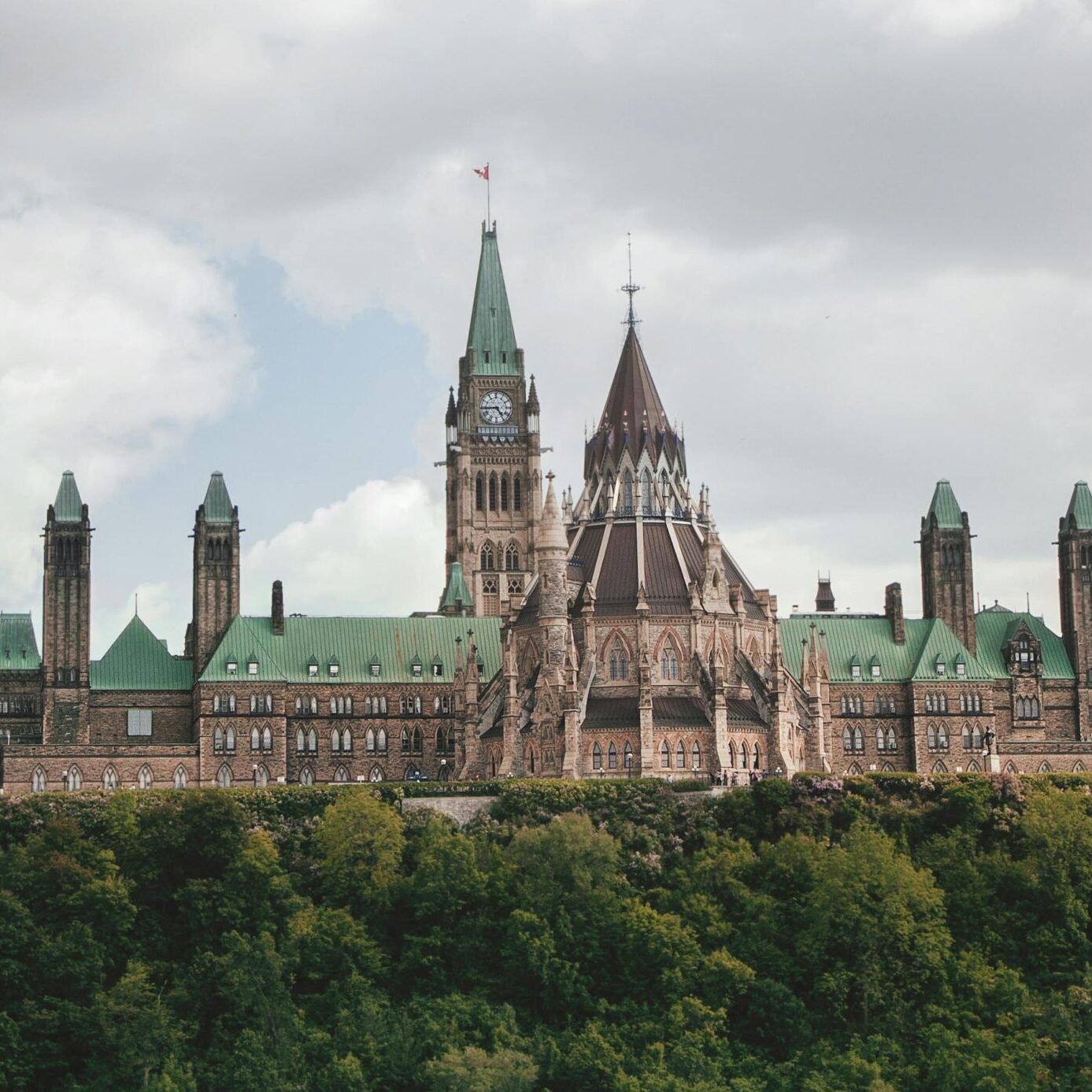By Matthew Mendelsohn | Part of our Special Series: Always Canada. Never 51.
The new Liberal government has a mandate to pursue an economic growth and sovereignty agenda. Prime Minister Carney has placed the idea of building at its centre.
And the government is getting lots of advice on how to pursue that growth agenda. Some of this advice is simply wrong and will make our economic problems worse, like the suggestion to cut corporate or capital taxes.
But a lot of the advice will deliver real benefits and growth. There is momentum to deliver nation-building trade and transportation infrastructure, build one integrated Canadian economy and a broad consensus that we can deliver natural resource projects more quickly, particularly when Indigenous people have equity stakes.

But that agenda represents only a sliver of what needs to be done and doesn’t get to the core of our structural economic challenges. Canada has systemic problems that require systemic solutions.
These problems are well-documented, and many of them speak directly to the issue of ownership. We simply do not own enough of our economy. This leaves us vulnerable as a nation, with many Canadians feeling economically at risk.
Our businesses and natural resources have been bought by foreign investors. We have accepted being a branch-plant economy. We have sold our IP to others and celebrated it as a windfall. We have hollowed out our Main Streets and consolidated local economies. Our “industrial policy” has been geared towards writing big cheques to foreign giants or subsidizing business-as-usual amongst Canadian oligopolies. We have built businesses with a mindset towards exit—usually to a large financialized global interest—rather than building for long-term value, as owner-operators do.
These structural problems must be addressed as the government pursues its growth agenda, and they won’t be fixed by listening to the same voices who want governments to cut tax and regulations. The record shows that corporate Canada prefers to boost profits, extract wealth, hoard cash and sell to foreign buyers rather than invest in their own innovation and productivity.
These structural problems have also meant that too few Canadians have seen the benefits from growth. As we continue to watch the unfolding spectacle south of the border in horror, it is important to keep one key lesson in mind: economic growth that concentrates wealth and privilege leads to economic, social, environmental and democratic collapse.
So, as we pursue growth and prosecute the “building Canada” agenda, we should remember the lesson from our history: too often, we build and invest, only to sell off our assets and resources to the highest foreign bidder, leaving us economically vulnerable.
In this moment of extreme peril, how should we “build, baby, build” in a way that doesn’t merely accelerate the trends towards consolidation of wealth and deeper economic dependence?
Four overarching principles should guide the economic growth agenda to deliver broadly shared benefits and avoid exacerbating current unsustainable economic inequality.
First, we must put our economic sovereignty and ownership of our own assets front and centre. We need more community ownership, employee ownership, local independent business ownership, and Indigenous ownership. It means we need more Canadian-owned businesses looking to grow globally.
In practice, this means using loan guarantees or co-investing with pension funds to keep Canadian businesses in Canadian hands, enforcing the Investment Canada Act to prevent our assets from being bought up and setting up independently managed sovereign funds to invest in and purchase vulnerable Canadian businesses.
Second, we must mobilize capital from across society so that it actually gets to the people and communities where it can build wealth and ownership for Canadians. The government has talked about catalyzing private-sector capital for big infrastructure projects, but we must catalyze capital from all sectors to reinvest in communities, local businesses, social enterprises and not-for-profits.
In practice, this means unlocking philanthropic capital by requiring impact investment, amending legislation to make community financing of local businesses and social enterprises easier, using loan guarantees to facilitate the transition to employee and co-op ownership and using the Business Development Bank of Canada (BDC) and its community banking arm to provide lower-cost capital to vulnerable entrepreneurs and to those Indigenous, Black, rural and other entrepreneurs who have been shut out from capital markets in the past.
Third, we must remake our economic model so that independent entrepreneurs, smaller businesses and new ventures have a real chance to compete against our entrenched, consolidated and financialized corporate sector. The dominant Canadian business model driven by our oligopolies—crush competition, consolidate markets, secure favourable treatment from regulators, rent-seek, extract wealth and grind consumers on price—is bad for Canadians and weakens us economically. It pools up wealth in the hands of a small number of legacy oligopolies and the billionaires who own them.
In practice, this means making it easier for independent Canadian entrepreneurs to buy existing businesses, strengthening the Competition Act to address serial acquisitions that extract wealth rather than investing it and making tax changes to disincentivize private equity (PE) buyouts and roll-ups—along with share buybacks—that make it more attractive for corporate leaders to enrich themselves rather than invest in their businesses.
And fourth, we must use all the tools of strategic industrial policy to catalyze investment in the Canadian economy, which will require new government skills and capacity.
In practice, this means choosing a few big goals and building the state capacity needed to leverage the full power of government—procurement, regulation, tax policy, R&D investment, concessionary capital deployment, infrastructure builds, governance and a nation-building role for our public financial institutions—to shape a dynamic and growth-oriented economy that reinforces our economic sovereignty and goals. If we place popular “missions” at the heart of our industrial strategy—like food security and affordable housing—we can succeed in finding a path through this moment of historic disruption and emerge, truly, as “masters in our own home.”
The strategic direction proposed here for our growth agenda is not radical and most initiatives would be broadly supported across parties. They are good public policy.
But the approaches are not top-of-mind when decision- and policy-makers think about the economic growth agenda. They are not the ones that pop up in editorials or on panel discussions in Ottawa about productivity. But they should be.
Canada has everything we need to emerge stronger from this period of geopolitical disruption if we put economic sovereignty and broad access to wealth-building at the heart of our agenda. If our economy is broadly owned by Canadians, we will be more resilient to whatever threats may come our way from MAGA or elsewhere.
If, on the other hand, we merely use this moment to check off the wish list from corporate Canada, we will reproduce our current structural weakness and exacerbate the wealth inequality that is leading to the societal unravelling we see down south. I hope those making decisions in the federal government have learned the right lessons from the past twenty years of capitalism and choose to build the right way.
Share with a friend
Related reading
Mark Carney’s Davos speech is a manifesto for the world’s middle powers
Mark Carney's recent speech at Davos matters because it treats this moment as a rupture, not a passing disruption. It’s in this rethink, write Matthew Mendelsohn and Jon Shell, that there is also relief: “From the fracture, we can build something better, stronger and more just,” Carney said. “This is the task of the middle powers.” The world's middle powers are not powerless, but we have been acting as if we are, living within the lie of mutual benefit with our outsized and increasingly erratic neighbour. Without the U.S., the world's middle-power democracies are rich, powerful and principled enough that we can unite to advance human well-being, prosperity and progress.
Four reasons our economy needs employee ownership now
Employee ownership offers a timely solution to some of Canada’s most pressing economic challenges, writes Deborah Aarts in Smith Business Insight. Evidence shows that when employees share ownership, businesses become more productive, innovative and resilient. Plus, beyond firm-level gains, employee ownership can help address the coming mass retirement of business owners, protect local economic sovereignty, boost national productivity and reduce wealth inequality. There is enough data about the brass-tacks benefits of employee ownership to sway even the most hardened skeptic.
Advice to the public service: Five ways to confront monsters and chaos
Canada's political and bureaucratic leaders are quickly trying to re-wire the federal government to confront a belligerent Unites States, but systems can’t deliver what they were not designed for. This is a time like no other in our history, writes Matthew Mendelsohn, and those making decisions have not been trained for this—because we haven’t experienced anything like this before. Drawing on his own time in Ottawa, he walks us through five priority “machinery of government” changes our public service needs to make to meet the threat of an increasingly authoritarian, imperialist America.


